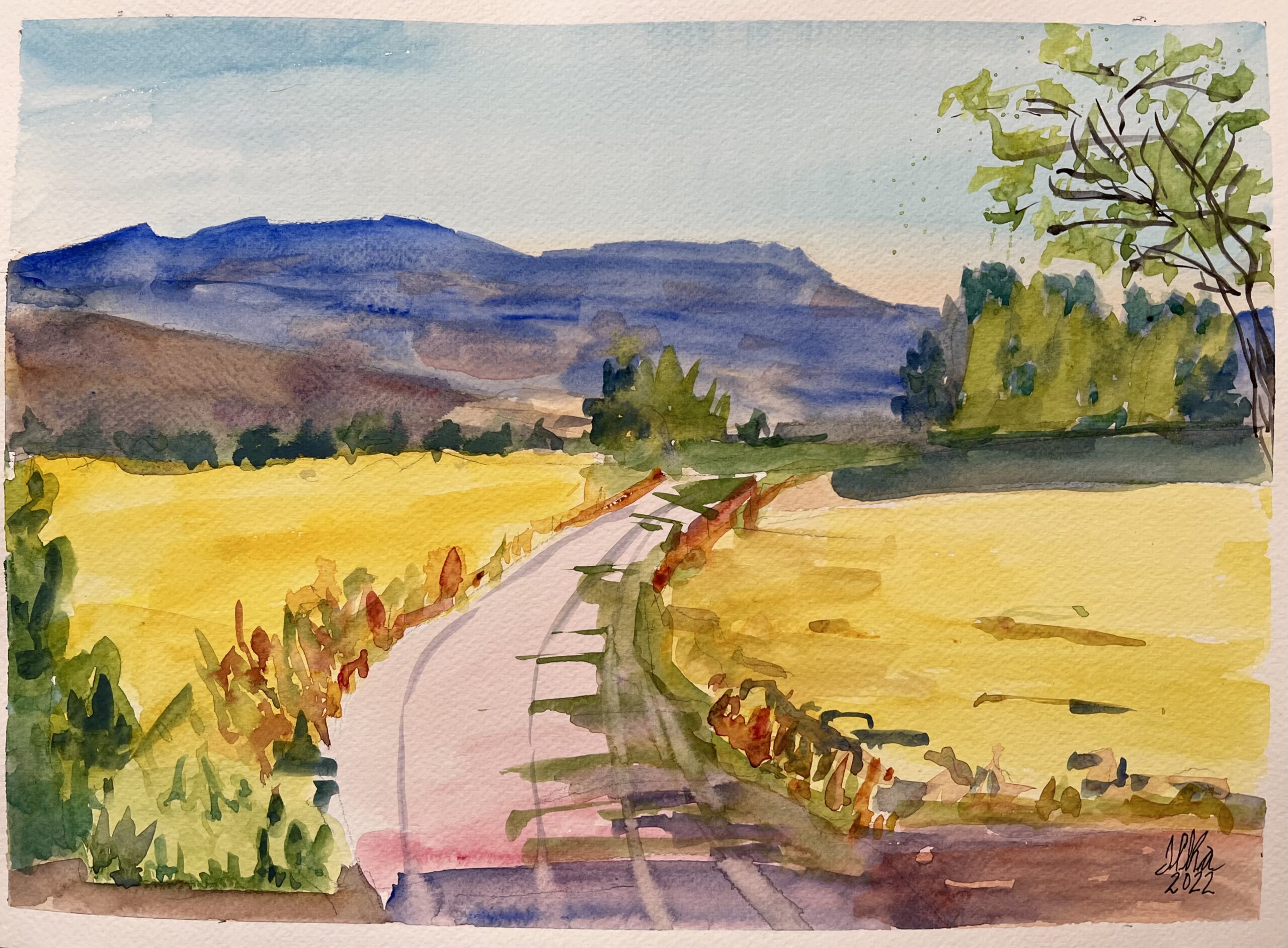Translated by Katrina Hassan
The alarm clock sounds off from afar, he checks the time, and it is three thirty a.m. He gets up, still sleepy, and walks towards the bathroom. He left a bucket full of water in the room the night before to save himself from going out on the patio to dispose of it. In a bag, he has four outfits. He takes one that he ironed the night before and gets dressed to wait on the bread delivery man that will arrive at any second now.
On one of two hobs on the stove, he heats up beans, on the other tortillas. He takes a bag of cream and cheese from the fridge. He got it from the vendor that comes from Taxisco every week. He pours himself some coffee and takes two zeppelins from the bread basket. He serves himself beans, puts the tortillas in a cloth, and begins to eat his breakfast. It is four in the morning. In an hour, he needs to open the grocery store. Before he opens, he must clean and organize the counter. He does this every day before opening.
After he cleans the counter, he sweeps the shop and dusts the shelves. He places the cold bread from the previous day in bags so he can sell them at half price. When he got asked to go to the capital to work at grocers, he had high hopes of attending night school. That was the deal he had with the owner, a man that was originally from his town. He had left undocumented to the United States and came back twenty years later with money to set up a business and go back up North. The man arrived in town, and he called himself an entrepreneurial migrant.
In his hometown of Nahuatán, Pajapita, San Marcos, Guatemala, Ovidio and the young people around him didn’t have much of a future but to go to the United States. Ovidio also wanted to go, but his mom would tell him that if he left, she would never see him again. Just like it has happened with so many that had died along the way to the United States. Either that or parents die waiting for their children’s return. She begged him not to go far, that it hurt so much to be in labor with him and all this for never seeing him again.
They agreed with the employer that he would get an annual bonus, ten days of vacation a year, end-of-the-year holidays to see his family, could finish his studies at night school, and could live behind the shop in a comfy room, but none of this was true. He had worked in this grocery store in the capital for seven years. He sleeps a few steps away from the propane gas cans on a stinky mattress. It had been there since before he arrived. He would wake up at dawn, open the shop until ten p.m. and go to bed at midnight. He would go to bed only after cashing up, organizing the shop, and ordering products for restocking.
The store owner opened three more branches. He took on three more guys from his town to mind the stores. Ovidio told his friends that the so-called migrant entrepreneur is no more than an exploitive employer. His mom pleads with him not to quit. She argued that he had food and a roof over his head and that some new opportunity would eventually come. Ovidio had a few scares with the propane gas canisters and suffered the indignity of being robbed regularly. The shop did not protect anyone from bullets or threats, especially when he would go to the market to get fruit and vegetables to stock.
Ovidio found out that quite a few girls that work in the tortilla shops are in the same situation as himself. The girls themselves have told him that in the area, a lot of the store workers are indigenous, barely speak Spanish, and are brought to town like himself. When he arrived, he only spoke Mam. Ovidio barely speaks Spanish despite all the years he has lived in the capital. Let’s not even get started with the robberies. The robbers have even written them notes in order to collect regular weekly payments or be killed. The store owners turned a blind eye even though their walls were splashed with blood as a warning.
Carmen, one of the girls that worked at one of the tortillerias, did not want to risk her life getting robbed anymore. She did not want to waste her lungs making tortillas or lining other people’s pockets. She had been trying to convince Ovidio for months that they should go to the United States. One of her cousins will take them in when they arrive. Five of her friends are going and are joining one of the caravans of Honduran migrants that are crossing Guatemala.
Finally, Ovidio decides, and one morning, he wakes up and receives the bread delivery. He did not open the store and left through the back door. He called the owner to tell him he was quitting and took his weekly wages. He left the shop key with one of tortilleria girls from nearby. He reassured the boss that there was nothing stolen.
On the way to Mexico, the couple passed through San Marcos, but Ovidio did not want to stop to see his parents. He knew that his mom would convince him to stay once again. They left their land, like the downtrodden always do, like flocks of birds looking for other horizons.
If you share this text in another website and/or social media, please cite the original source and URL: https://cronicasdeunainquilina.com
Ilka Oliva-Corado @ilkaolivacorado






